HVAC technicians or contractors are well-trained professionals who are experts in everything HVAC. They are well versed in every component inside the HVAC system. Besides, for HVAC repair or maintenance tasks, they follow the proper guidelines and handle the HVAC unit very cautiously. But should you consider hiring an HVAC contractor or do DIY for Read more
repair
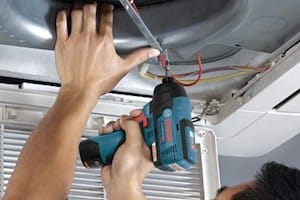
HVAC technicians or contractors are well-trained professionals who are experts in everything HVAC. They are well versed in every component inside the HVAC system. Besides, for HVAC repair or maintenance tasks, they follow the proper guidelines and handle the HVAC unit very cautiously.
But should you consider hiring an HVAC contractor or do DIY for HVAC repairs?
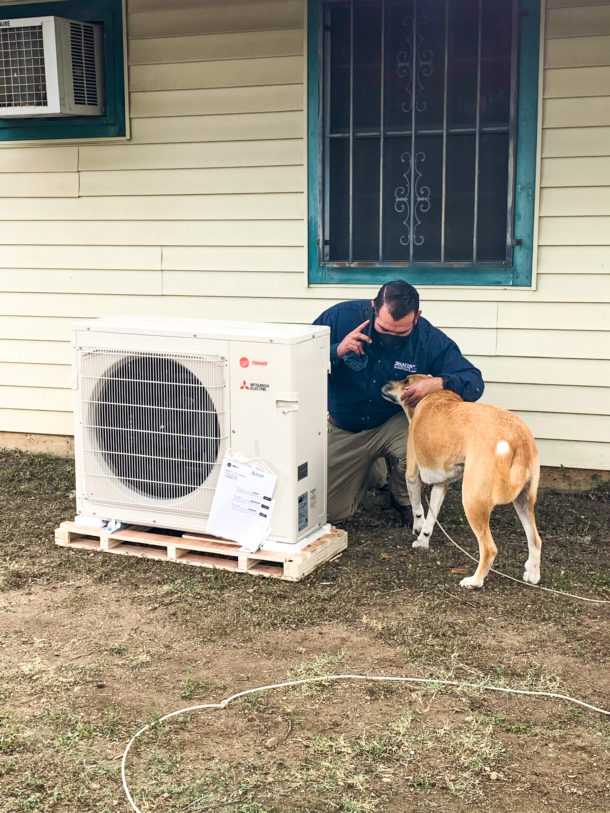
1. Follows Strict Protocols During HVAC Cleaning
HVAC systems are complicated and need to be handled cautiously. When you hire a novice HVAC technician or handyman who doesn’t have enough experience handling an HVAC unit, he will likely damage the HVAC system. On the flip side, when you hire an expert HVAC contractor, he strictly follows the HVAC cleaning protocols.
For example, for cleaning the outside AC unit, an experienced HVAC contractor will first disconnect the cooling system. Then if there is debris in the cooling unit, he will clean them. After that, he will clean the AC fins and coils. When the HVAC contractor cleans the AC fins and coils, he will straighten the AC fins and level the HVAC unit. Similarly, there are protocols for cleaning the parts inside the AC unit.
When the protocols are followed strictly, there is zero risk of damaging your HVAC unit. But a person who doesn’t have experience in handling HVAC systems doesn’t know this HVAC cleaning protocol. As a result, if that person tries to clean the HVAC system, it can cause severe damage to the HVAC system. This is why for HVAC cleaning, you should never DIY. Instead, it is advised to hire an HVAC contractor to clean the unit.
2. Fast & Reliable HVAC Service
HVAC contractors are well versed in the HVAC unit. They undergo extensive training, and most professional HVAC contractors have an HVAC license. Having an HVAC license indicates that you know the ins and out of an HVAC unit and can handle any type of issue. Besides, an HVAC contractor has all the necessary tools to repair an AC or furnace.
On the flip side, when you hire a regular repairman, they don’t have the required tool to handle the HVAC unit. As a result, at first, they will have to collect all the required tools and start working later. But this will take a lot of time and make the HVAC repair or maintenance process less efficient.
This is why if you want efficient, quick, and reliable HVAC service, you must call an HVAC contractor or technician.
3. Helps Increase HVAC Efficiency
Over time, HVAC units start to lose their efficiency and have wear and tear. But HVAC efficiency can be increased by regular maintenance. Here, an HVAC contractor will help you out.
A professional HVAC contractor knows which type of repair to do to keep the HVAC system efficiency at an optimum level. On the other hand, a regular repairman won’t know what to do to increase efficiency. As a result, he will suggest random AC or furnace repairs. But these repairs are of no use. That is why for the correct type of HVAC service, you must hire a professional HVAC technician or contractor.
4. Does Home Evaluation
When using an HVAC unit, you will have to factor in your home’s condition and size. Without proper home evaluation, you will have issues such as hot and cold spots, inefficient cooling, high energy bills, etc. However, you can avoid these issues by hiring an HVAC contractor.
An HVAC contractor not only looks after the HVAC system but also evaluates your home’s condition. For example, if you are planning to purchase a new air conditioning unit, you will first have to consider the size of the room. Because if you purchase an AC with less or more capacity than the actual demand, you won’t get the desired comfort.
Besides, ventilation plays a key role in keeping your house comfortable, and without proper home evaluation, correct ventilation design is not possible.
Measuring the room size, ventilation design, calculating the HVAC capacity, etc., may sound a bit complicated. But when you hire an HVAC contractor, he will do all these and provide you with the best HVAC solution.
5. HVAC Insurance
Mistakes can happen during a repair, and if the component isn’t covered by insurance, you will have to pay from your own pocket. But when you hire an HVAC contractor, you won’t have to worry about it at all because most HVAC contractors have HVAC insurance coverage. As a result, if there is a need for additional repairs, HVAC insurance will cover those costs. But when you hire a handyman, they usually don’t have such HVAC insurance. Thus, if it requires additional repairs, you will have to pay for it.
Conclusion
For HVAC cleaning or regular maintenance, always call an HVAC contractor. Besides, when it comes to an HVAC unit, you should never rely on DIY methods. Because sometimes, DIY ways are not effective and cause more harm than good to the HVAC system.
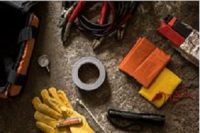
A broken bucket handle or cracked shop-vac aren’t just minor annoyances on the job site – they’re common frustrations that can lose you money in delays, unnecessary trips to the hardware story and expensive repairs or replacements. Instead of falling behind on your next project, consider keeping a professional grade duct tape on hand as Read more
A broken bucket handle or cracked shop-vac aren’t just minor annoyances on the job site – they’re common frustrations that can lose you money in delays, unnecessary trips to the hardware story and expensive repairs or replacements.
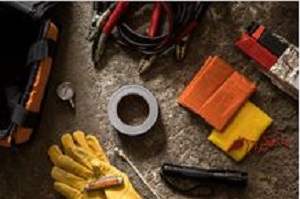 Instead of falling behind on your next project, consider keeping a professional grade duct tape on hand as your backup. It’s the tool you don’t realize you need until you need it. Here are seven tips for using different types of duct tapes for unexpected, on-the-fly repairs and improvised tools.
Instead of falling behind on your next project, consider keeping a professional grade duct tape on hand as your backup. It’s the tool you don’t realize you need until you need it. Here are seven tips for using different types of duct tapes for unexpected, on-the-fly repairs and improvised tools.
1) Create a makeshift chain
Rope and chain are handy tools for unforeseen jobsite tasks — but they’re also cumbersome and they take up a lot of space. Which means they’re often left behind at the shop when you need something for tasks like hoisting tool boxes and materials to a roof or platform. Enter heavy-duty duct tape. A product like T-Rex® Brute Force™, which can hold 700-plus pounds of weight with one 36” loop, can easily handle the job and be cut to the size you need.
2) Keep your socks dry
Torn boot uppers or holes in the sole are one of the most common annoyances you can experience. If you’re working in wet conditions, those annoyances can become hazards. Some rubberized pro-grade tapes are specifically designed with waterproof and extreme adhesive qualities, which makes them perfect for keeping sand, dirt, water, mud and other liquids out.
3) Repair or replace that broken bucket handle
Buckets always seem to break in the most inconvenient situations. Don’t let a busted handle force you to make a 20-minute work detour for a trip to the hardware store – tape it up, reinforce it, and get back to work with a high-strength tape.
4) Keep a hammer hammering
 Tools aren’t indestructible, and when they break you can lose money in delayed work if you don’t have a backup on site. If a hammer handle snaps or the head comes off mid-job, wrap it with an extra-strength duct tape to get you through the rest of the day.
Tools aren’t indestructible, and when they break you can lose money in delayed work if you don’t have a backup on site. If a hammer handle snaps or the head comes off mid-job, wrap it with an extra-strength duct tape to get you through the rest of the day.
5) Keep the paint flowing
Paint sprayers are a real time saver — until you accidentally puncture the hose. Instead of reaching for a brush or roller to finish the job, try wrapping the hose with multiple layers of a high-adhesive duct tape to help keep it sealed until you can pick up a new one.
6) Patch your truck’s interior
Contractors often reach for duct tape to patch holes in truck seats. But standard duct tapes tend to curl in extreme temperatures, moisture and constant wear. Reach for a stronger alternative like the original T-Rex® Tape, which won’t curl or peel even in extreme temperatures.
7) Unspring a sprung leak
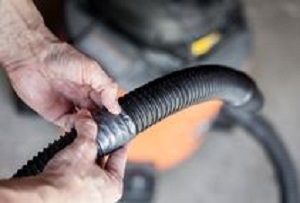 A cracked, torn or ill-fitting vacuum hose is a recipe for a mess. Use a waterproof tape to patch it up, reinforce the connection of the hose to the main vacuum chamber, or, combined with caulk, even patch a crack in the chamber itself.
A cracked, torn or ill-fitting vacuum hose is a recipe for a mess. Use a waterproof tape to patch it up, reinforce the connection of the hose to the main vacuum chamber, or, combined with caulk, even patch a crack in the chamber itself.
Instead of falling behind on your next project, reach into your toolkit for a professional grade tape. The repairs may not be permanent, but having a tape on hand as backup on the job site can help keep you on schedule and on budget.
We’ve all been there, so let us know some of the cool ways that you’ve used tape on the job.
